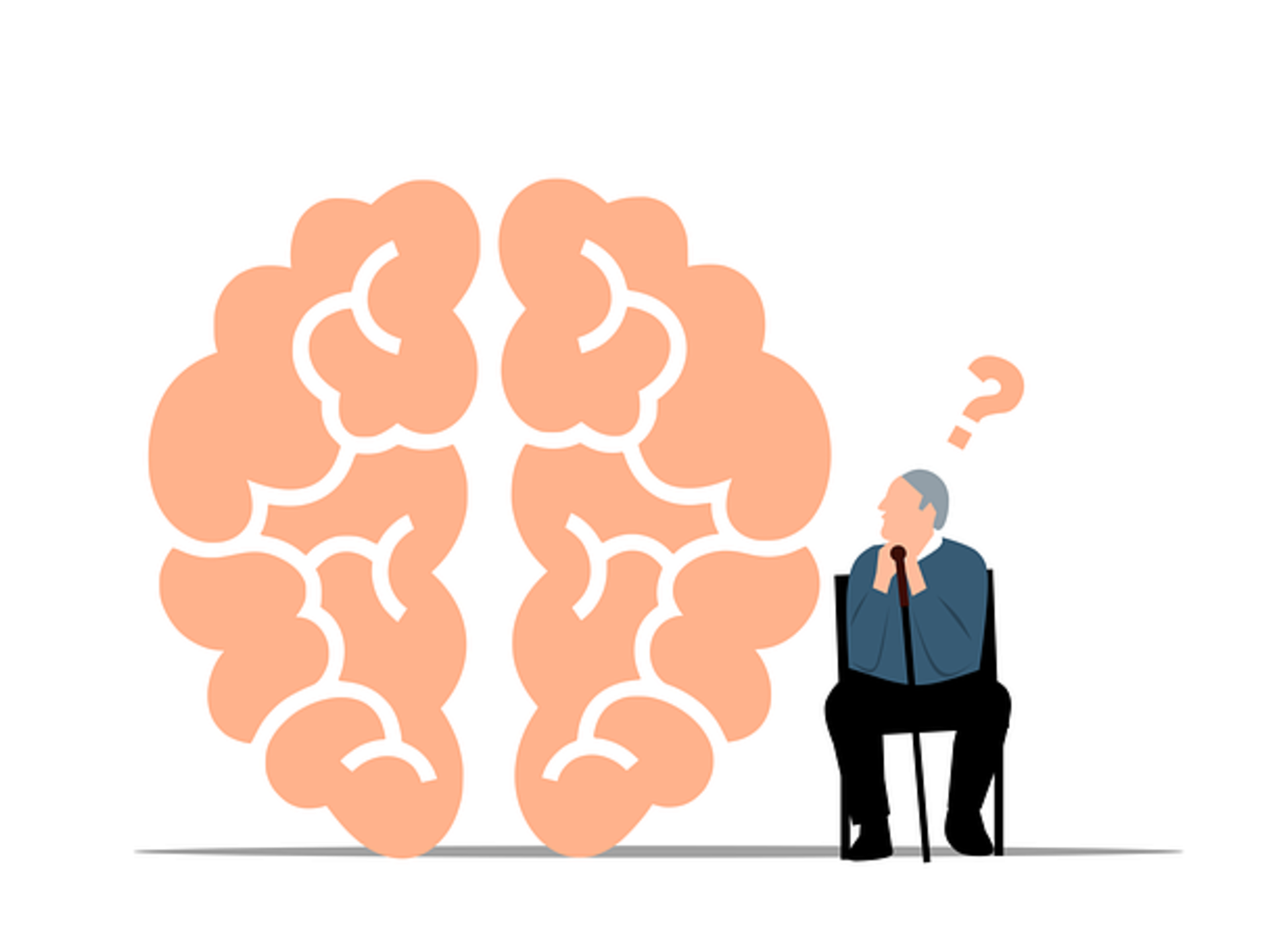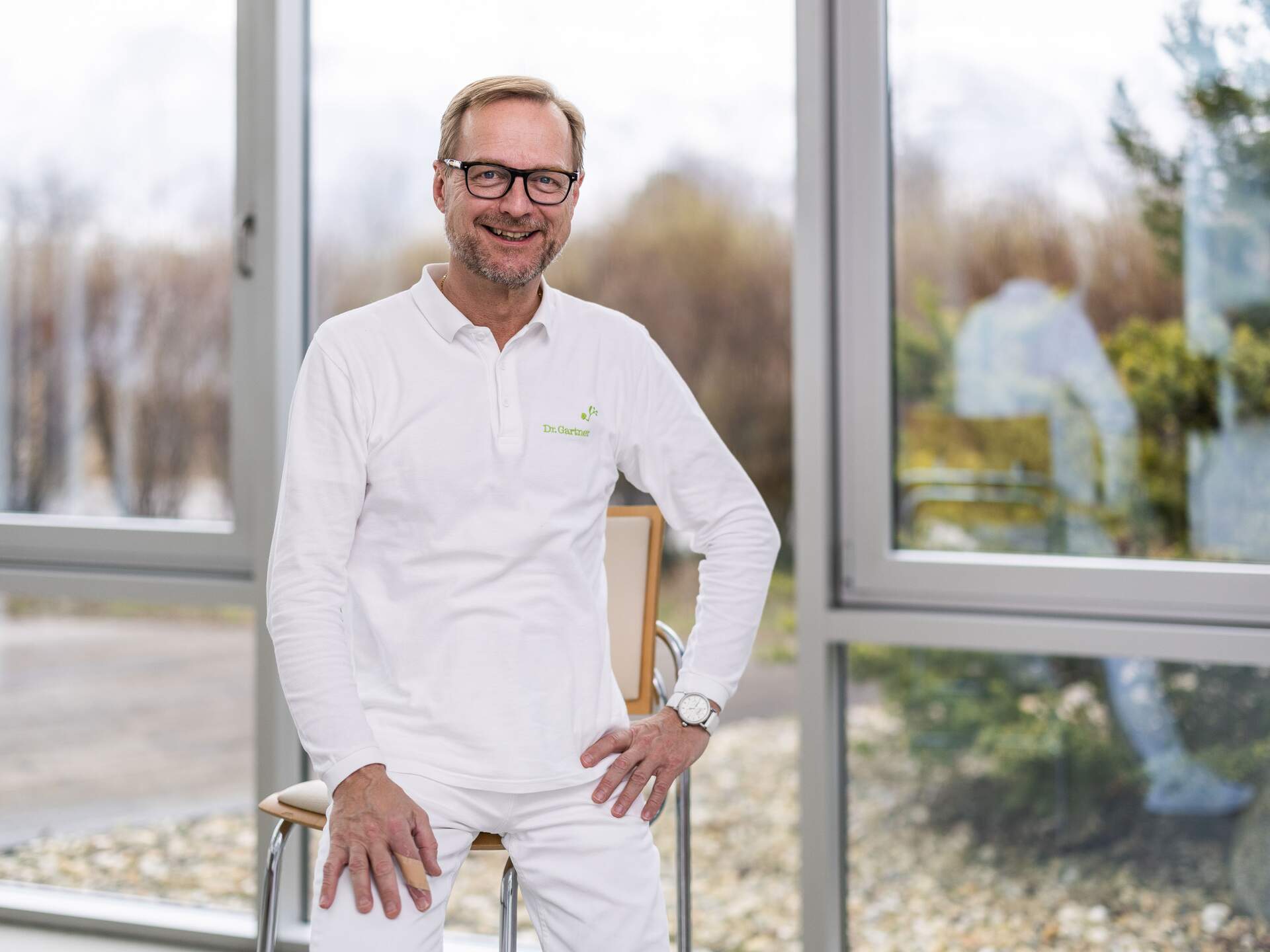With prevention against dementia
Let’s start with the good news of this story: The principle of hope is prevention. Those who lead healthy lives significantly reduce the likelihood of developing some form of dementia. Science today already knows a great deal about dementia, its forms, the course of the disease and prevention. And at the same time, unfortunately, what we do actually know is still far too little. There are many unanswered questions about the causes and development of dementia and about possible therapeutic approaches.
Disease of society
“The fact is that with increased life expectancy, there will be more and more people who develop some form of dementia as they get older. And this will have massive societal implications. Therefore, based on our current understanding, it’s definitely time that we have a frank conversation about preventive approaches to this disease,” says Dr Richard Kogelnig, physician and deputy medical director at Health Retreat Park Igls. According to the medical doctor and psychologist, we need to speak more openly and more publicly in favour of prevention awareness, research as well as for facilities for those affected or support for relatives.
Comment by Dr Peter Gartner, Head Physician Park Igls
Although we do not yet know a cure for dementia, we know very well that a healthy lifestyle reduces the risk of developing dementia in old age. That’s no small thing. But it also depends on what you make of it. After all, shaping our lifestyles is something we all have control of. This applies to each and every one of us. If you are reading this magazine, you are particularly aware of the importance of your health. After all, you’ve probably already been our guest and have consciously decided to take a Mayr cure with us. Perhaps you are our guest right now! I hope this was and is a life-changing experience for you, even if it’s not easy, especially at the beginning, to set a course towards a healthier lifestyle. Most of us feel the same way. But let me tell you this: It’s the very best decision you can make! For you own benefit. So, if you are just starting out on this journey: Just do it!
A rising trend
Dementia in numbers
According to the WHO, 50 million people worldwide, including around 2 million Germans, 850,000 Britons, 130,000 Austrians and around 145,000 Swiss are estimated to be currently suffering from some form of dementia – excluding (presumably) high numbers of unreported cases. Forecasts predict that these numbers may double, perhaps triple, by 2050 at the latest, so this is anything but a small thing. “This raises a host of societal questions that urgently need answers, and the sooner the better. However, findings from scientific and medical research give us reason for optimism. All that’s needed is to organise the necessary resources,” says Dr Richard Kogelnig.
What can we do?
“Healthy living, eating right, plenty of exercise. And training the brain. All this sounds so simple, but for many of us it is not, because it often requires modifying our lifestyles. A Mayr cure over the course of several weeks can actually offer a very conscious starting point and inspiration for a healthier life. We experience this quite often here at Park Igls,” says the experienced expert. And what’s more: “Dementia affects us all including our friends and loved ones. That which each and every one of us has in our control is maintaining a healthy lifestyle. Perhaps you just have to remind yourself of this every day: “The modern F.X. Mayr cure, which has been at the centre of prevention at Park Igls for decades, is a proven therapy to avoid lifestyle diseases and thus also provides sensible, active protection against neurodegenerative diseases. If you want to protect your brain for the long haul, you would do well to prioritise lifestyle choices in line with Dr F. X. Mayr!”
»Children are told stories to fall asleep – adults to wake up.«
More information about dementia
Dementia is a generic term for around 50 different diseases of the human brain. One such type of dementia is Alzheimer’s. It is by far the most common form of dementia, a disease in which nerve cells in the brain die and thereby impair a person’s mental faculties. The causes of Alzheimer’s disease are still not fully understood. What is certain, however, is that Alzheimer’s disease – similar to other forms of dementia (e.g., Lewy body dementia) – is a neurodegenerative disease; i.e. nerve cells in the brain die off. When it comes to Alzheimer’s disease, nerve cells in the cerebral cortex are mainly affected, but also in deeper brain areas as well.
... in our brain are constantly exchanging information, as they constantly fire electrical impulses to their neighbouring cells. In order for neighbouring cells to receive information, the electrical impulses are converted into chemical messengers. There are various messenger substances in our brains, so-called ‘neurotransmitters’. Alzheimer’s disease is primarily associated with the neurotransmitter acetylcholine. This is the substance that transports memories, thinking and learning processes, but also orientation through to our brains. In Alzheimer’s disease, the nerve cells that produce acetylcholine die off, which is one cause of all the disorders that Alzheimer’s dementia provokes. The other cause is that, in addition to the nerve cells dying, proteins called ‘amyloid’ or ‘plaques’ are deposited outside these nerve cells.
... consist of a nucleus, the amyloid nucleus, pathologically altered nerve cell processes and other cells, i.e. the supporting cells. In simplified terms, one speaks of amyloids. In many Alzheimer’s patients, amyloids are found not only between nerve cells but also in the smaller blood vessels of the brain. That’s why about one in five Alzheimer’s patients suffers not only from Alzheimer-type dementia, but also from vascular dementia at the same time. The small blood vessels in the brain are constricted or even blocked with amyloids, which can trigger strokes.
... are differentiated in medicine into mild (early-stage Alzheimer’s disease), moderate (progressive Alzheimer’s dementia) and severe (advanced Alzheimer’s dementia). Doctors use tests, such as the MMST (the Mini-Mental Status Test), an interview with nine task components, to determine patient’s current stage.
65 %: Alzheimer’s disease
15 %: Vascular dementias
15 %: Mixed dementias
5 %: other
In Alzheimer’s disease, the short-term memory is affected first. The long-term memory is affected later. In the beginning, those affected forget situations that have just happened as if they have been erased, and some names for the most banal everyday things, such as shoes, no longer spring to mind. As the disease progresses, memories disappear, as do everyday skills such as how to handle eating utensils or personal hygiene activities.
On average, Alzheimer’s disease lasts about eight years after diagnosis, though this varies from patient to patient, especially since the disease is often detected or diagnosed late. There are patients who live with their disease for 20 years. Nevertheless, Alzheimer’s generally leads to death in its final stages. The reason that the condition becomes fatal is that the immune system of those affected continues to weaken, so that infections become more frequent. For instance, patients are more likely to contract pneumonia and other infections. Since patients in the final stage are usually already of an advanced age, many also suffer from other physical diseases which can also lead to death.
Even though the causes of Alzheimer’s disease remain largely unclear, there are definitely some risk factors that promote the onset of Alzheimer’s dementia. These are:
- obesity
- high blood pressure
- high cholesterol
- high blood sugar
- lack of exercise
- poor nutrition
- as well alcohol abuse, type 2 diabetes mellitus or permanent stress (see WHO recommendations).
... are statistically more likely to develop Alzheimer’s disease. This may be because men don’t live to be that old on average, and for that reason alone, their risk is simply lower. However, it is a fact that the number of new cases is higher in women than in men.
... refer to forms of dementia caused by disturbances in the blood supply to the brain. For various reasons such as deposits, constriction or clotting, the blood vessels are no longer able to adequately fulfil their task of transporting blood. What are the consequences? Nerve cells become damaged or even die. High blood pressure is often the underlying cause, although obesity or smoking can also promote vascular dementia. Vascular dementia accounts for about 15 percent of all dementia cases and is the most common form of dementia after Alzheimer’s disease. Although vascular dementia cannot be cured, there is a good chance that its cause, i.e. circulatory problems, can be treated. It is important that vascular dementia is detected and treated as early as possible.
Binswanger's disease
... is amongst the most common classifications of vascular dementia cases. The cause is a thickening of the walls in small blood vessels of the brain (arteriosclerosis). This subcortical arteriosclerotic encephalopathy (SAE disease) is called Binswanger’s disease after the German neurologist Otto Ludwig Binswanger. Sometimes, the terms ‘subcortical dementia’ or ‘subcortical vascular dementia’ are also used. Those who have suffered from high blood pressure or other vascular diseases for many years are often affected by this condition.
Multi-infarct dementia
... is a form of dementia in which small cerebral infarctions occur due to repeated vascular occlusions. They slowly destroy the brain in many small steps. Sometimes, a single, severe stroke is responsible, but often there are several multi-strokes.
... unlike Alzheimer’s, can occur quite suddenly – depending on where a blood vessel has clotted in the brain. Multi-infarct dementia, in particular, progresses almost inconspicuously over long phases. At times, the affected person is clearly impaired, for example, cannot find words or has difficulty remembering, then suddenly he or she is lucid once again. Typical symptoms include memory, speech, thinking and movement disorders, problems with orientation or mood swings.
are
- high blood pressure
- smoking
- diabetes mellitus
- high LDL cholesterol levels
- heart failure
- cardiac arrhythmias
These risk factors all have one thing in common: They can lead to damage of the blood vessels, deposits (arteriosclerosis), poor blood circulation and strokes. If none of the risk factors apply, family history may also promote the development of vascular dementia. There is an increased risk of vascular dementia if ancestors, parents or close relatives have suffered strokes more frequently and if family members are prone to high blood pressure.
A study published in Nature in 2009 impressively illustrated that modified fasting with a thirty percent calorie reduction over a period of just three months could significantly improve memory performance in the fasting group.












